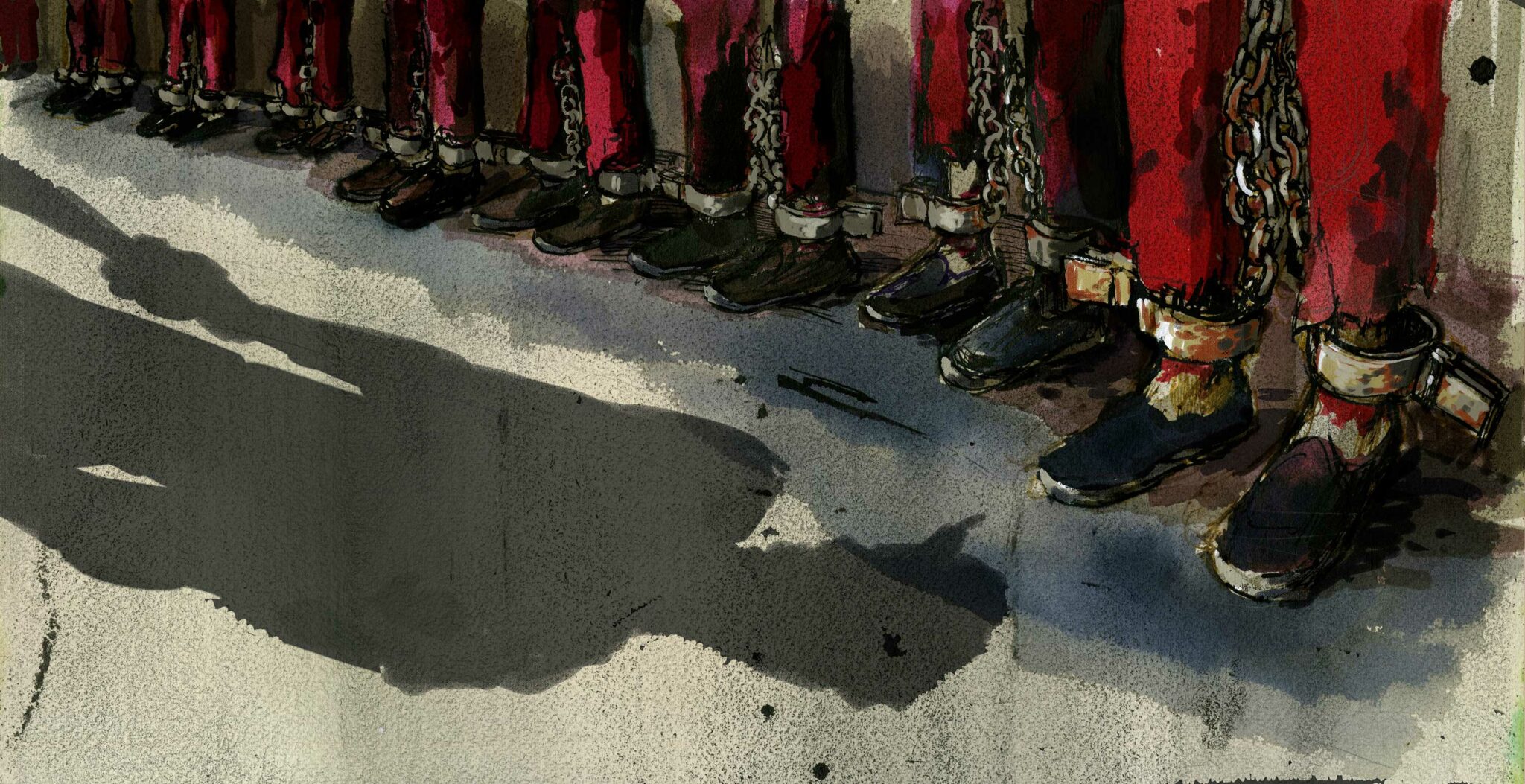The omnipresent surveillance state
Muslims living in Xinjiang may be the most closely surveilled population in the world. The government of China has devoted tremendous resources to gathering incredibly detailed information about this group’s lives. This systemized mass surveillance is achieved through a combination of policies and practices that infringe on people’s rights to privacy and freedom of movement and expression.
Amnesty International interviewed 65 members of ethnic minority groups who lived in Xinjiang between 2017 and 2021, each of whom described what it was like to experience the government’s system of surveillance. Amnesty also interviewed a Han Chinese person who visited Xinjiang and provided their observations of the surveillance state. [[[Amnesty International interview; For another account of a Han Chinese man in Xinjiang see Amnesty International, “Witness to Discrimination: Confessions of a Han Chinese from Xinjiang,” 16 June 2020 →]]] According to these people, the system of surveillance involves extensive, invasive in-person and electronic monitoring in the form of:
- biometric data collection, including iris scans and facial imagery;
- invasive interviews by government officials;
- regular searches and interrogations by ubiquitous security officers;
- “homestays” by government employees and cadres assigned to live with ethnic minority families;
- an ever-present network of surveillance cameras, including facial recognition cameras;
- a vast network of checkpoints known as “convenience police stations”; and
- unfettered access to people’s personal communication devices and financial history.
The information witnesses provided to Amnesty is consistent with what journalists, scholars, and other investigators have revealed about the government’s mass surveillance operation in Xinjiang. [[[For other articles and reports on surveillance in Xinjiang See Paul Mozur and Aaron Krolik, New York Times, “A Surveillance Net Blankets China’s Cities, Giving Police Vast Powers: The authorities can scan your phones, track your face and find out when you leave your home. One of the of the world’s biggest spying networks is aimed at regular people, and nobody can stop it,” 17 December 2019 →; Yael Grauer, The Intercept, “Revealed: Massive Chinese Police Database – Millions of Leaked Police Files Detail Suffocating Surveillance of China’s Uyghur Minority,” 29 January 2021 →; Darren Byler, Noema Magazine, “The Xinjiang Data Police: In western China, the government has deputized an army of mostly young men to surveil the digital and real lives of people in their own communities,” 8 October 2020 →; Darren Byler, Prospect Magazine, “Big Brother vs. China’s Uighurs: Constant surveillance, cultural suppression and ‘re-education’ are the day-to-day reality for China’s Muslim minorities. And the technology giants that enable it are closer than we might thing,” 28 August 2020 →; Human Rights Watch, “China’s Algorithms of Repression: Reverse Engineering a Xinjiang Police Mass Surveillance App,” 1 May 2019 →; Megha Rajagopalan, BuzzFeed News, “This is What a 21st-Century Police State Really Looks Like,“ 17 October 2017 →; Josh Chin and Clement Burge, The Wall Street Journal, “Twelve Days in Xinjiang; How China’s Surveillance State Overwhelms Daily Life,” 19 December 2017 →]]] In addition to providing the government with enormous amounts of personal information, this operation allows the authorities to comprehensively track – in real time – the communications, movements, actions, and behaviour of Xinjiang’s ethnic minority population. [[[Paul Mozur and Aaron Krolik, New York Times, “A Surveillance Net Blankets China’s Cities, Giving Police Vast Powers: The authorities can scan your phones, track your face and find out when you leave your home. One of the of the world’s biggest spying networks is aimed at regular people, and nobody can stop it,” 17 December 2019 →]]]
Much of the information gathered from the government’s mass surveillance effort is reportedly uploaded to a big-data collection system called the Integrated Joint Operations Platform, where it is continuously aggregated and analysed. [[[Human Rights Watch, “China: Big Data Fuels Crackdown in Minority Region – Predictive Policing Flags Individuals for Investigations, Detentions, 26 February 2018 →]]] According to research by Human Rights Watch, police and other government officials have used the IJOP for collecting large amounts of personal information as well as for “reporting on activities or circumstances deemed suspicious, and prompting investigations of people the system flags as problematic”. Behaviours deemed “suspicious”, included peaceful religious practices, the use of unauthorized communications software, and purchasing or using what is considered to be an abnormal amount of gasoline or electricity. [[[Human Rights Watch, “China’s Algorithms of Repression: Reverse Engineering a Xinjiang Police Mass Surveillance App,” 1 May 2019 →]]] Many of the “suspicious” behaviours the IJOP reportedly tracked and flagged mirror “reasons” camp detainees interviewed by Amnesty were given for why they were sent to a camp (see Chapter 3).
Azat, who worked for the government and was familiar with parts of the data collection system, told Amnesty about some of the movements and communications the government tracked:
In 2017… It was all going in the system… All the information, where you have gone, who you have talked to, goes into the database… We were collecting information on three main categories: who you travel with, where you sleep, and who you talked to… If you were involved with someone – you called them, you travelled with them, or you shared a hotel with them – then [your name] goes onto a list and is sent [to various levels of government]. [[[Amnesty International interviews.]]]



